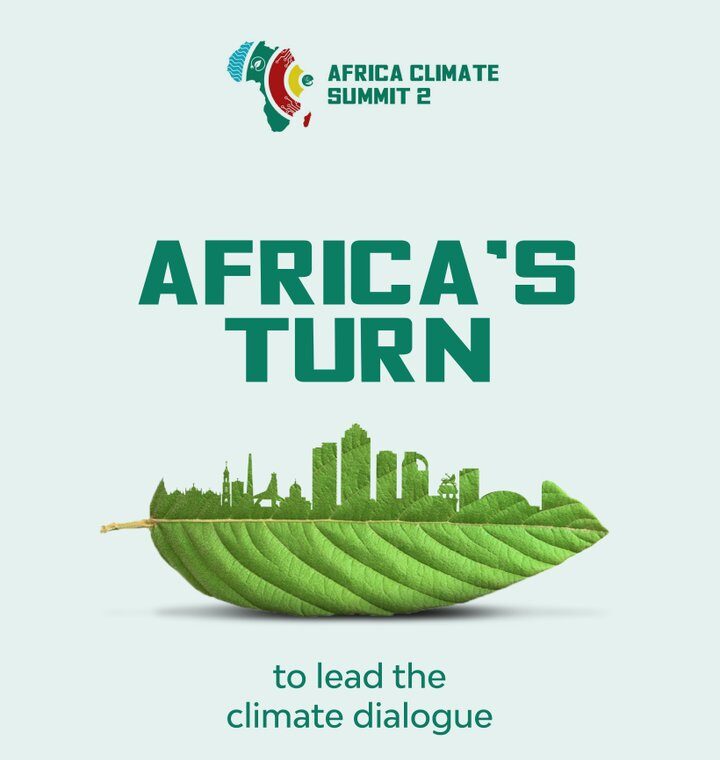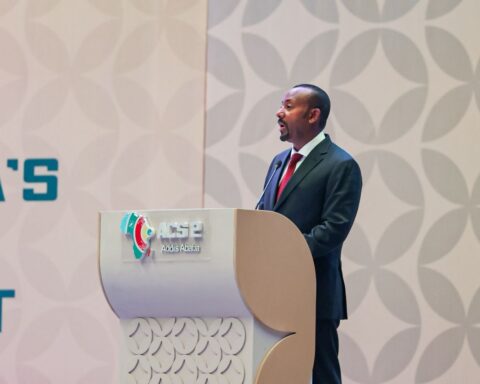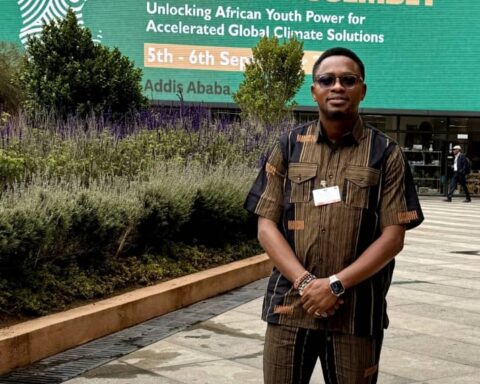As the world hurtles toward climate catastrophe, Africa is stepping out of the shadows of climate victimhood and into the spotlight of global leadership. The Second Africa Climate Summit (ACS2), scheduled for September 8–10, 2025, in Addis Ababa, Ethiopia, is being hailed as a bold call to action, a historic pivot where African-led climate solutions meet the global finance agenda.
With the theme “Accelerating Global Climate Solutions: Financing for Africa’s Resilient and Green Development,” ACS2 promises more than just political rhetoric. It aims to cement Africa’s role as both a frontline defender and innovator in the battle against climate change.
2024 is on record as the hottest year in history. Yet, 2025 is poised to surpass it. Droughts in East Africa, devastating floods in West and Central Africa, and erratic weather patterns across the Sahel are no longer anomalies; they’re the new climate reality.
Despite contributing less than 4% of global greenhouse gas emissions, African countries are disproportionately bearing the brunt, spending over 5% of their GDP annually on climate response. Meanwhile, only a trickle of the required $3 trillion in climate finance has reached the continent.
Ethiopian State Minister of Planning and Development H.E. Seyoum Mekonen said ACS2 is not just another climate event; rather, it’s Africa’s moment to lead.
“Africa must no longer be seen only as a victim. We are a continent of solutions,” he said.
In his remarks, AU Commissioner for Agriculture and Sustainable Environment H.E. Moses Vilakati, said ACS2 is built on two strategic pillars, which are showcasing Africa-Led Climate Solutions and unlocking Scalable Climate Finance.
According to him, “from solar-powered irrigation in Kenya to climate-smart farming in Nigeria and drought-resilient crops in Burkina Faso, African innovators are proving that adaptation is not only possible, it’s already happening.
“But scaling these solutions requires more than ingenuity; it requires serious funding. Only 18% of mitigation needs and 20% of adaptation goals in Africa are funded. The gap is vast. ACS2 must turn declarations into delivery,” he said.
Reclaiming Africa’s Energy Future: 300 GW by 2030
Africa is rich in sunlight, wind, hydropower, and critical minerals. Yet over 600 million Africans still lack access to electricity.
ACS2 will reaffirm Africa’s bold ambition to scale renewable energy capacity to 300 gigawatts by 2030, paving the way for Universal energy access, green industrialization, and job creation for youth and women.
This energy transformation also speaks to climate justice: allowing Africa the right to develop without the pollution-heavy pathways of the past.
Co-chair, ACS2 Program Committee Abas Mohammed, said Africa is calling for a complete overhaul of the global climate finance architecture.
He stated that ACS2 will pressure multilateral lenders and donor nations to increase grant-based and highly concessional finance, particularly for adaptation projects that protect lives, not just carbon markets.
“The Summit will interrogate whether current finance mechanisms are fit for purpose. It’s time for Africa to receive financing on fair, accessible terms,” he said.
Among the landmark deliverables expected is a Flagship Report on African-Led Climate Action a sweeping documentation of grassroots innovations, policy breakthroughs, and climate technology deployments that are already yielding impact on the ground.
Early Warning Systems: Africa’s Shield Against Climate Shocks
With climate shocks escalating in frequency and severity, early warning systems are emerging as Africa’s most urgent line of defense.
The AU, through ACS2, will showcase a continental early warning and adaptation program integrating: Meteorological and hydrological data, Health and disaster risk monitoring, and Indigenous knowledge systems.
The Director, Sustainable Environment & Blue Economy, AUC, Mr. Harsan Nyambe, said Africa needs real real-time system that can predict and prevent climatic conditions.
“From floods in the Congo Basin to droughts in the Horn, Africa needs real-time, community-based systems that can predict and prevent. We’re investing in equipment, training, and local ownership,” he said.
ACS2 is expected to convene 45+ African heads of state, alongside UN agencies, private sector leaders, civil society, and development partners.
Already, over 400 side events and 74 national and regional pavilions are registered, underscoring the scale and momentum behind Africa’s climate movement.
According to H.E. Seyoum Mekonen, “This is our COP. ACS2 must inspire collective action and make Africa’s voice impossible to ignore at COP30,” he said.
In line with Agenda 2063, the ACS2 agenda prioritizes inclusive climate governance by placing youth and women at the heart of solutions. From women-led climate cooperatives in Rwanda to green tech startups in Ghana, the Summit will amplify efforts that reflect Africa’s demographic dividend as a catalyst for innovation.
Education and training are also focal points, highlighting the need to integrate climate literacy, vocational skills, and agricultural technology into Africa’s education systems.
Africa is not waiting for the world to act. It is stepping forward with bold ideas, backed by homegrown data, technology, and innovation. The Second Africa Climate Summit will not merely be a talking shop; it is being positioned as Africa’s climate report card and investment pitch rolled into one.
As the world gears up for COP30, ACS2 will ensure that Africa speaks with one voice, demanding financing that matches ambition and recognizing that climate solutions must be led with Africa, not just for Africa.
By Dare Akogun







